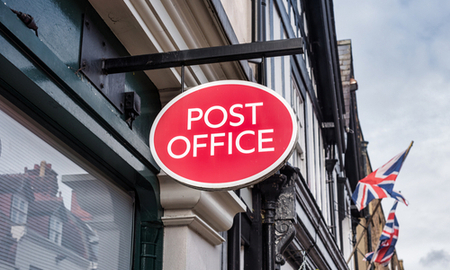Sign up for our free daily newsletter
YOUR PRIVACY - PLEASE READ CAREFULLY DATA PROTECTION STATEMENT
Below we explain how we will communicate with you. We set out how we use your data in our Privacy Policy.
Global City Media, and its associated brands will use the lawful basis of legitimate interests to use
the
contact details you have supplied to contact you regarding our publications, events, training,
reader
research, and other relevant information. We will always give you the option to opt out of our
marketing.
By clicking submit, you confirm that you understand and accept the Terms & Conditions and Privacy Policy
The Solicitors Regulation Authority (SRA) has revealed that it has more than 20 live investigations into solicitors and law firms on the go in relation to the Post Office Horizon IT scandal.
In its first update on the scandal since January, the SRA has for the first time given an indication both of the number of solicitors and law firms being investigated and the issues it is investigating.
The SRA statement reads: “As officers of the court, solicitors should never put other interests – such as the outcome for their client – above the law and the proper administration of justice.
“We have more than 20 live investigations into solicitors and law firms who were working on behalf of the Post Office/Royal Mail Group.”
However, the solicitors’ regulator for England and Wales continues to maintain that urgent regulatory action is not required to protect the public and that it will be best placed to act on the conclusion of the public inquiry into the scandal.
The update comes as the ongoing Post Office IT Inquiry continues to generate deeply uncomfortable headlines for the legal profession over the role of lawyers in what is regarded as the widest-ever miscarriage of justice in the UK.
The daily hearings have seen a procession of in-house lawyers, external legal advisers as well as senior executives, including former chief executive Paula Vennells, come under forensic questioning from the inquiry’s legal team and counsel representing the scandal’s victims.
The Post Office now concedes that between 1999 and 2015, 700 SPMs were convicted in cases in which evidence provided by the faulty Horizon IT system may have featured. Many were jailed and financially ruined.
After the prosecutions were halted, the Post Office went on to defend the integrity of Horizon in a group claim brought against it by 550 SPMs. Bates versus Post Office settled in 2019 after a scathing judgment by Mr Justice Fraser, who wrote that denials about the existence of bugs was “the 21st century equivalent of maintaining that the earth is flat”.
In its statement, the SRA says that the range of issues it is looking at include “solicitors’ management and supervision of cases; and the strategy and conduct of prosecutions and of litigation (including group litigation – Mr Bates Vs The Post Office)” and “duties relating to expert witnesses”.
Also under the microscope are “disclosure obligations and improper application of privilege to protect communications from disclosure” and “issues relating to the operation of the Post Office Complaint Review and Mediation Scheme, including overcharging of claimants, use of non-disclosure-agreements and labelling of correspondence”.
It adds that it is also “looking at the conduct of solicitors in relation to their engagement and cooperation with the ongoing public inquiry”.
Controversially, Jane MacLeod, who was general counsel from 2015 to 2019 and oversaw the defence of the Bates group claim, has refused to return from her native Australia to appear as a witness.
The SRA goes on to reveal that its investigation has involved “scrutinising tens-of-thousands of pages of information and evidence” and that is has been “calling in evidence under our own powers” as well as “obtaining court orders requiring the Post Office/Royal Mail Group to provide us with relevant documents”.
The inquiry’s hearings are due to conclude by the end of September and its chair, retired High Court judge Sir Wyn Lewis Williams, has said he will produce his final report “as soon as is reasonably practicable following the completion of the evidence gathering”.
In a lecture at the University of Strathclyde Law School last month, Richard Moorhead, professor of law and professional ethics at the University of Exeter, said the involvement of so many lawyers in the scandal suggests the existence of a “corporate-legal cover up culture” within the legal profession.
Email your news and story ideas to: [email protected]









